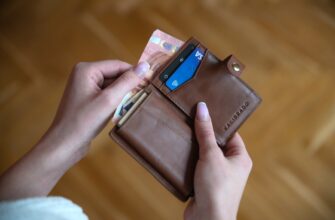- Why Anonymous Fund Storage Matters More Than Ever
- Understanding Anonymous Fund Storage Fundamentals
- 8 Best Practices to Store Funds Anonymously Securely
- 1. Prioritize Privacy-Centric Cryptocurrencies
- 2. Use Cold Storage Hardware Wallets
- 3. Leverage Anonymous Prepaid Instruments
- 4. Employ Mixing/Tumbling Services Cautiously
- 5. Eliminate Personal Identifiers
- 6. Rotate Wallets and Storage Methods
- 7. Fortify Digital Hygiene
- 8. Monitor Regulatory Shifts
- Mitigating Risks in Anonymous Storage
- FAQ: Storing Funds Anonymously
Why Anonymous Fund Storage Matters More Than Ever
In an era of digital surveillance and data breaches, learning how to store funds anonymously is crucial for financial privacy. Whether protecting savings from hackers, avoiding targeted advertising, or safeguarding against identity theft, anonymous storage limits exposure of your financial footprint. This guide details actionable best practices to securely hold assets without compromising personal data, focusing on legal methods that prioritize both privacy and security.
Understanding Anonymous Fund Storage Fundamentals
Storing funds anonymously means holding value without linking it to your real-world identity via bank accounts, government IDs, or traceable transactions. Key tools include:
- Privacy Cryptocurrencies: Monero (XMR), Zcash (ZEC), or privacy-focused Bitcoin wallets.
- Prepaid Solutions: Non-reloadable gift cards or anonymous debit cards.
- Physical Assets: Cash or precious metals stored securely offline.
Note: Anonymity differs from illegality—always comply with local regulations to avoid legal risks.
8 Best Practices to Store Funds Anonymously Securely
1. Prioritize Privacy-Centric Cryptocurrencies
Opt for coins with built-in anonymity features. Monero obscures sender, receiver, and amount via ring signatures and stealth addresses. Zcash offers shielded transactions. Avoid transparent chains like Bitcoin unless using mixing techniques.
2. Use Cold Storage Hardware Wallets
Store crypto offline in hardware wallets (e.g., Ledger, Trezor). Benefits:
- Immune to online hacks
- No IP linkage during transactions
- PIN-protected access
Never store recovery seeds digitally—use engraved metal plates in secure locations.
3. Leverage Anonymous Prepaid Instruments
Purchase non-reloadable gift cards or prepaid debit cards with cash. Best for smaller amounts:
- Buy from physical stores without ID requirements
- Use for online purchases without bank links
- Discard after depletion to prevent tracking
4. Employ Mixing/Tumbling Services Cautiously
Crypto mixers (e.g., Wasabi Wallet, CoinJoin) obscure transaction trails by pooling funds with others. Critical precautions:
- Verify service reputation to avoid scams
- Use small, staggered amounts
- Avoid regulated jurisdictions
5. Eliminate Personal Identifiers
Never reuse addresses, emails, or devices tied to your identity. Create new wallets for each transaction and use VPNs/Tor to mask IPs. For cash storage, avoid safety deposit boxes requiring ID verification.
6. Rotate Wallets and Storage Methods
Regularly migrate funds between new wallets or assets to fragment digital footprints. Example rotation cycle:
- Convert crypto to Monero via decentralized exchange
- Transfer to fresh hardware wallet
- Cash out anonymously via Bitcoin ATMs (where legal)
7. Fortify Digital Hygiene
Security enables anonymity. Essential steps:
- Encrypt devices with VeraCrypt
- Use open-source, audited software
- Enable 2FA on non-anonymous recovery accounts
8. Monitor Regulatory Shifts
Laws evolve—subscribe to crypto privacy newsletters (e.g., CoinDesk) and avoid jurisdictions cracking down on anonymity tools. Always declare funds per tax regulations to prevent legal issues.
Mitigating Risks in Anonymous Storage
While empowering, anonymity carries risks:
- Scams: Verify services via community forums like Reddit’s r/privacy.
- Loss of Access: Use multi-sig wallets or physical backups.
- Regulatory Action: Consult legal experts if storing large sums.
Balance privacy with practicality—overcomplication increases error risks.
FAQ: Storing Funds Anonymously
Q: What does “store funds anonymously” mean?
A: It involves holding money or assets without linking them to your identity via banks, IDs, or traceable digital footprints, using methods like privacy coins or cash.
Q: Is anonymous fund storage legal?
A: Yes, if compliant with anti-money laundering (AML) laws. Avoid illicit activities—anonymity for personal privacy is legal in most regions.
Q: What’s the safest anonymous storage method?
A: Hardware wallets with privacy coins (e.g., Monero) offer optimal security. For cash, use high-quality safes in undisclosed locations.
Q: Can I store fiat currency anonymously?
A: Partially—cash is inherently anonymous but requires physical security. Prepaid cards offer limited anonymity but often need ID for large purchases.
Q: How do I avoid scams?
A: Research tools on sites like PrivacyTools.io, avoid “too good to be true” mixers, and never share private keys.
By implementing these best practices, you can effectively store funds anonymously while minimizing vulnerabilities. Regularly update your approach as technology and regulations advance to maintain both privacy and peace of mind.








